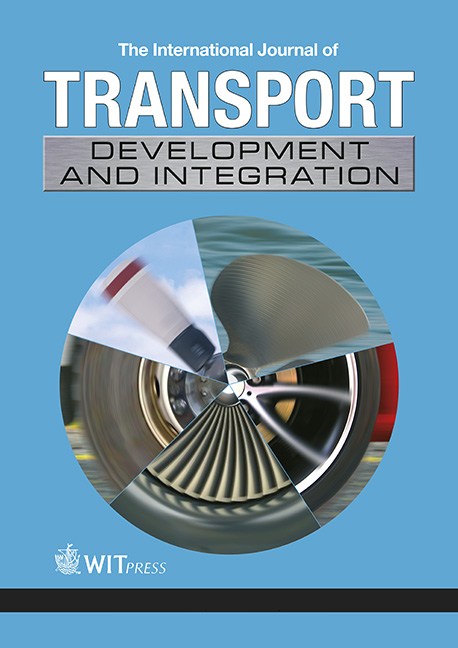Evaluation of Train Schedule by using Information Theory
Price
Free (open access)
Volume
Volume 1 (2017), Issue 3
Pages
10
Page Range
460 - 470
Paper DOI
10.2495/TDI-V1-N3-460-470
Copyright
WIT Press
Author(s)
K. Moro & Y. Sugai
Abstract
Convenience is an important requirement of a scheduled transit system. The authors proposed a new method to evaluate a train schedule by using entropy of the information theory. By the aspect of statistical mechanics, the randomness of a schedule is associated with the convenience of the schedule. However, the way of using entropy requires special conditions. In this paper, we show that we can relax the conditions by interpreting the entropy as information.
First, we explain the representation of a schedule by a tree structure. Introducing the tree structure, we recognize the more composite construction of schedules. The tree structure leads to the concept of conditional entropy. Using the concept of conditional entropy, we can evaluate schedules of the states of different places or times. Secondly, we can understand what the information of the schedule is. We can grasp that the information is the benefit of knowing the schedule. The increase of the entropy corresponds to the increase of the benefit. Moreover, it becomes possible to express an unexpected disbenefit by the entropy with the loss of information. In other words, the benefit is a positive entropy and the disbenefit is negative entropy. Finally, we show that we are able to deal with an influence of wasteful time in a schedule, such as an unnecessary waiting time and an extra duration by using the entropy. It is very important that we can evaluate negative effects, namely the discrepancy of supply and demand from the point of view of time.
Keywords
entropy, evaluate timetable, loss of information, tree structure




